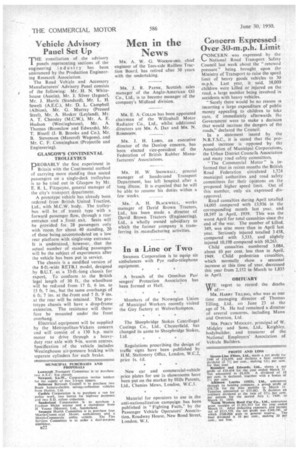Concern Expressed Over 30-m.p.h. Limit
Page 40

If you've noticed an error in this article please click here to report it so we can fix it.
rONCERN was expressed by the
National Road Transport Safety Council last week about the " renewed pressure" being brought upon the Ministry of Transport to raise the speed limit of heavy goods vehicles to 30 m.p.h. Last year, it said, 38,000 children were killed or injured on the road, a large number being involved in accidents with heavy vehicles.
"Surely there would be no reason in incurring a large expenditure of public money appealing to children to take care, if immediately afterwards the Government were to make a decision that would increase the dangers of the roads," declared the Council.
In a statement issued by the N.R.T.S.C., it is stated that the proposed increase is opposed by the Association of Municipal Corporations, the Urban District Councils Association and many road safety committees.
"The Commercial Motor" is informed that in recent months the British Road Federation circulated 1.724 municipal authorities and road safety committees for their opinions on the proposed higher speed limit. Out of this number, only six expressed disapproval.
Road casualties during April totalled 14,005 compared with 13,936 in the corresponding month last year, and 18.597 in April, 1939. This was the worst April for total casualties since the end of the war. The number of killed, 349, was nine more than in April last year. Seriously injured totalled 3 458, compared with 3,333, and slightly injured 10.198 compared with 10,263.
Child casualties numbered 3,084, about 10 per cent, less than in April, 1949. Child pedestrian casualties, which normally show a seasonal increase at this time of year, decreased this year from 2,152 in March to 1,835 in April.




























































































































